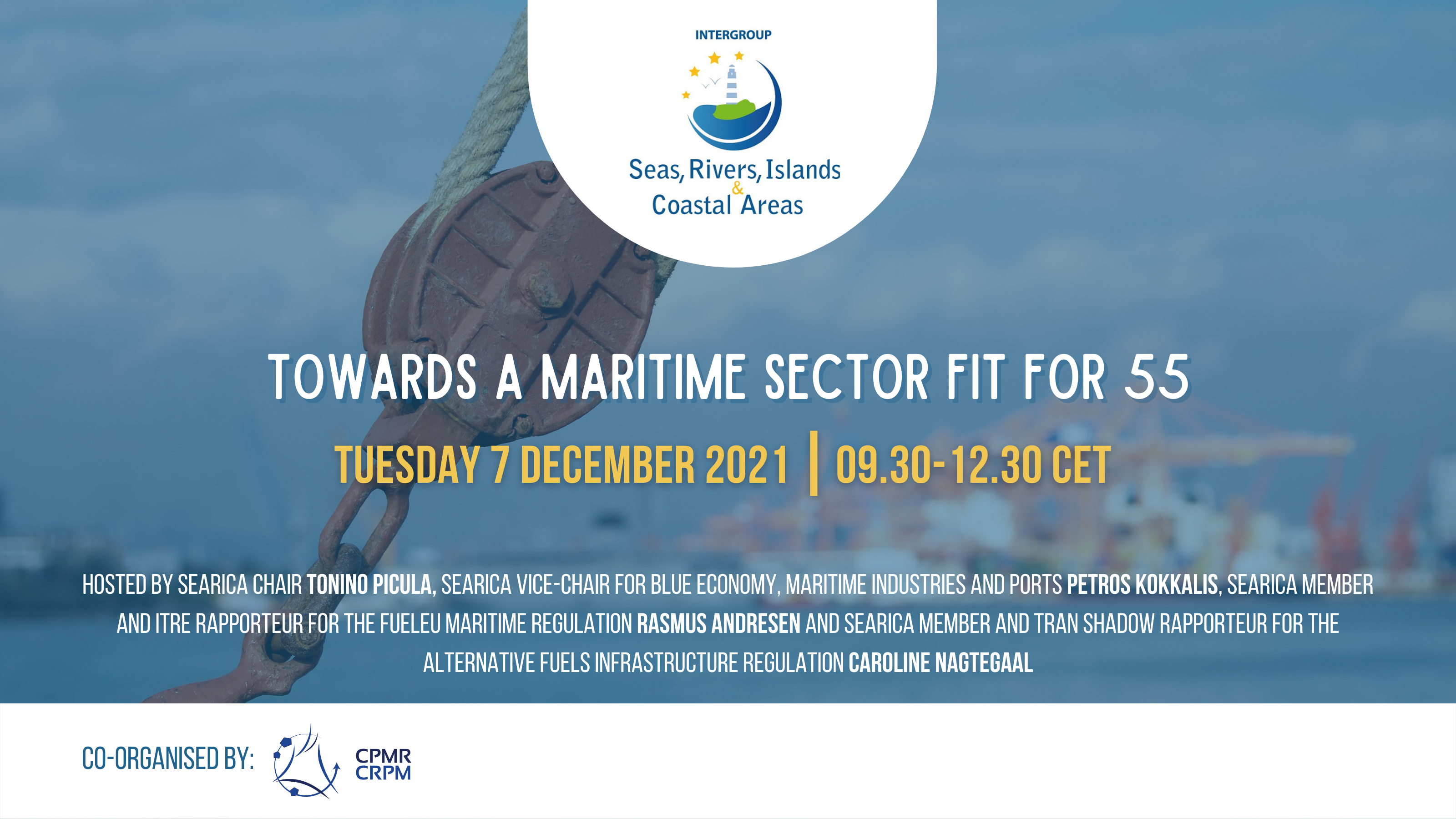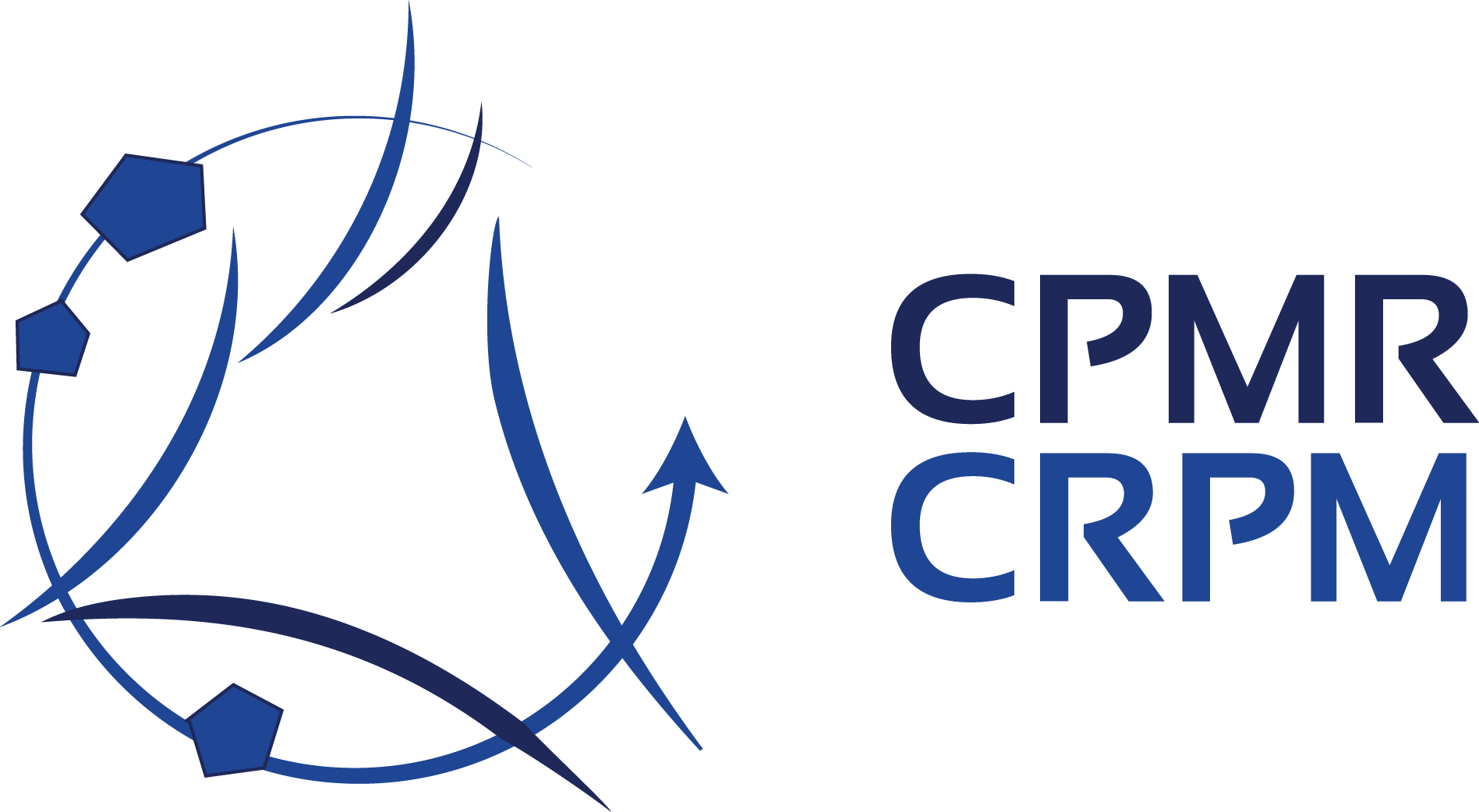Towards a maritime sector fit for 55

Please find HERE the recording of the meeting
Stay tuned and watch this space - we will organise a follow-up event on Fit for 55 measures in February 2022
Maritime transport is a crucial sector. For the EU as a whole and, of course, for all maritime Regions and port cities. It plays a key role in their socio-economic development. This is especially true for Islands and Outermost-Regions, where maritime transport is not only essential to connect citizens to the mainland, but also represents their main or only transport mode for goods.
Maritime transport is responsible for about 2.5% of global greenhouse gas (GHG) emissions and the sector is projected to expand. According to the 3rd IMO GHG study, under a business-as-usual scenario, shipping emissions could increase between 50% and 250% by 2050, undermining the objectives of the Paris Agreement.
At the same time, there is significant potential to reduce shipping emissions, as many technical and operational measures can contribute to decarbonising the sector. On 14 July 2021, the European Commission adopted a series of legislative proposals setting out how it intends to achieve climate neutrality in the EU by 2050. Several proposals included in the Fit for 55 Package, such as those on maritime fuels (FuelEU) and on energy infrastructure in ports (AFIR), are directly addressing emission reduction for maritime transport. Furthermore, the package as a whole (including e.g. the European Trading System (ETS) Directive, the Energy Taxation Directive, and the Carbon Border Adjustment Mechanism) will greatly impact maritime transport and maritime sectors.
With the negotiations of the different files now reaching the European Parliament, it is the right time to host a comprehensive SEArica discussion between DG MOVE and the MEPs, maritime sector representatives, coastal regions, ports, and NGOs.
The online event will be structured in 3 sessions and address the impacts and transition opportunities brought by the measures of the Fit for 55 Package upon the maritime sector.
Hosted by SEArica Chair Tonino Picula, SEArica Vice-Chair for Blue Economy, Maritime Industries and Ports Petros Kokkalis, SEArica member and ITRE rapporteur for the FuelEU maritime regulation Rasmus Andresen and SEArica member and TRAN shadow rapporteur for the Alternative Fuels Infrastructure Regulation Caroline Nagtegaal.
With the participation of SEArica member Josianne Cutajar.
Please find HERE the recording of the meeting
Event Properties
| Event Date | 07-12-2021 9:30 |
| Event End Date | 07-12-2021 12:30 |
| Categories | Conférence 2019-2024,Blue Economy, Maritime Industries and Ports,Maritime Transport |
| Attachment | SEArica_Agenda_Maritime Transport FIT for 55_061221.pdf |
What is an Intergroup?
The Seas, Rivers, Islands and Coastal Areas Intergroup is one of the 27 Intergroups that were approved on 11 December 2019 by the Conference of Presidents for the 9th legislature of the European Parliament. Intergroups can be formed by MEPs from any political group and any parliamentary committee with a view to holding informal exchanges of views on particular issues and promoting contact between MEPs and civil society.
The Seas, Rivers, Islands and Coastal Areas Intergroup brings together more than 100 MEPs from 7 different political groups and 23 Member States.
Intergroups are not Parliament bodies and therefore may not express Parliament's opinion.
Intergroups are subject to internal rules adopted by the Conference of Presidents on 16 December 1999 (last updated on 11 September 2014), which set out the conditions under which intergroups may be established at the beginning of each parliamentary term and their operating rules.










